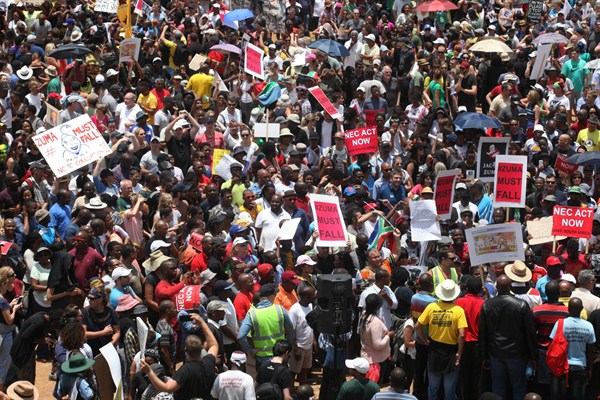Last week, thousands of protesters took to the streets of South Africa’s major cities, demanding that President Jacob Zuma step down. Controversy has mounted over his Dec. 9 decision to sack the country’s widely respected finance minister, Nhlanhla Nene, who he subsequently replaced with an unpopular former mayor. The shakeup immediately sent shockwaves through South Africa’s economy and the rand, the country’s currency, falling. That prompted Zuma to rescind the initial nomination and instead appoint Pravin Gordhan, a well-regarded former finance minister who served from 2009-2014, assuaging some fears.
Many saw Zuma’s decision to remove Nene as strategically shortsighted, but also as another example of his fiscally irresponsible and corrupt practices, which have enraged many South Africans. Just recently, Nene had vetoed a proposed change to an airplane-leasing deal between Airbus and South African Airways, the country’s state-owned airlines run by a woman who also heads Zuma’s charitable foundation. Nene argued that the proposed change to the deal, which Zuma favored, did not demonstrably benefit the airlines financially.
Last week’s protests are not the first to highlight Zuma’s notorious corruption. In September, thousands rallied to demand he implement measures to clean up his government. At the time, he promised to “subdue the scourge of corruption,” but few improvements have been made since. Politicians and business officials involved in allegations of bribery and embezzlement are rarely held accountable, revealing the impunity that allows corruption to thrive.

